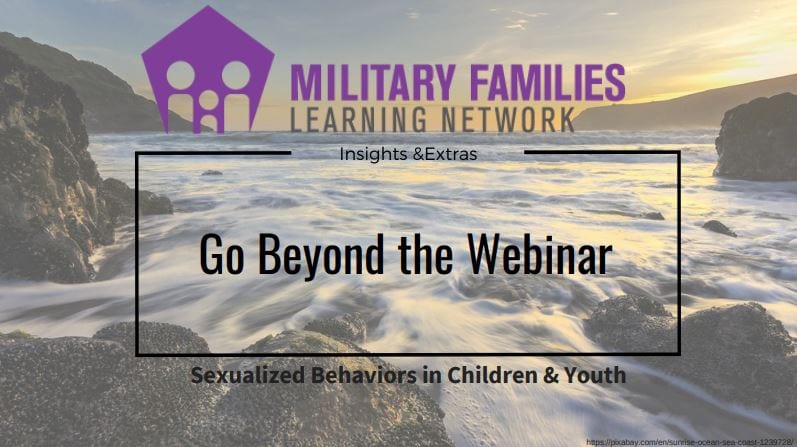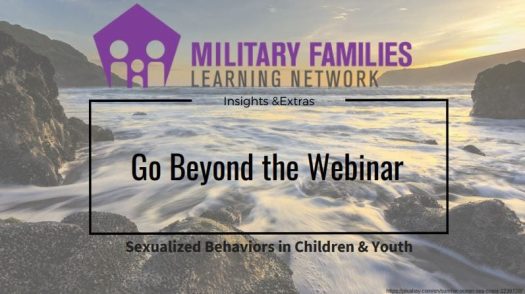
On May 22, 2019, Dr. Shelly Martin provided her expertise on working with children and families in recognizing normal childhood sexualized behaviors, as well as what to do when that behavior might become concerning or problematic. Dr. Martin is a child abuse pediatrician and a Colonel in the US Air Force, and in that capacity, she provides consultation for all forms of child abuse and neglect to all branches of the Armed Forces. Throughout this webinar, she shared her insights on important information for families and professionals to know when it comes to strategies to keep kids safe and thriving during childhood and youth.
Here are some of the highlights of this webinar that we found to be very beneficial in addressing the impact of problematic sexualized behaviors for children and youth:
- The webinar began with looking at normal sexualized behaviors that children may express which are typically driven by curiosity and exploration. These behaviors are intermittent and occur between children of the same age groups and developmental stages.
- Concerning sexualized behaviors are expressed as more adult-like than childlike; often consistent and intrusive/abusive for other children. These behaviors often result in emotional distress or physical pain and can take place between children of various ages. There are distinct developmental differences in age gaps of 4 years or more and this age gap is often a major area of concern if these behaviors are occurring between children of differing ages.
- Sexual verbal expression from younger school age children is often an imitation of adults. The use of problematic language and behaviors are often picked up from hearing adults say phrases, sounds, or seeing behaviors that are more adult-like.
- Various factors can influence the rise of problematic sexualized behaviors including child abuse, maltreatment, family violence, lack of parental supervision, or learned behaviors from other children in the family or neighborhood.
- Children who express problematic sexualized behaviors oftentimes have co-morbid diagnoses such as ADHD, Conduct Disorder, and Oppositional Defiant Disorder.
- Knowing how to properly assess for sexual behavior problems is crucial and can open the door for implementing resources and help for parents and family members.
- The impact of sexual abuse can lead to many issues for children including depression and PTSD. That’s why it’s important for parents or other adults to have open and trusting communication with children, especially when they disclose instances of sexual abuse.
Did you happen to miss the live webinar? No worries! We have the recording of the Sexualized Behaviors in Children & Youth webinar on the event page here. Free CEUs for this event are still available for licensed social workers, professional counselors, case managers, and family therapists until May 22, 2021.
And be sure to stay up to date on all of our programming in the Sexual Behavior in Children and Youth Series! You can sign up for our mailing list to be sure you don’t miss anything on the series homepage. This series will consist of several webinars and podcast episodes so be sure to stay tuned!
*Revised on 9/10/19 to reflect series title change















